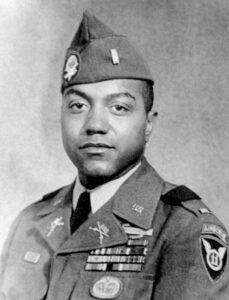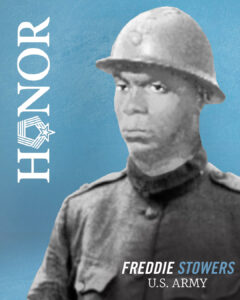Meet Lance Corporal Kyle Carpenter
Recipient: Kyle Carpenter
Branch: U.S. Marine Corps
Combat: War on Terrorism
Growing up, Kyle Carpenter always had an affinity for teams—sports, academics, and his close-knit family. He loved competition and finding ways to do better, get faster, be stronger. These traits, along with his commitment to succeed, made his mom, Robin, realize that one day he’d do something amazing. She just didn’t think it would be joining the U.S. Marine Corps.
After high school, Carpenter shared his intentions with Robin, and his father, Jim. Carpenter’s parents tried to dissuade him, offering him time in Key West or Colorado—anything to keep him away from combat in Iraq and Afghanistan. His parents worried about his safety, and wanted to protect him, Robin shared in an interview with the Military Officers Association of America. But Carpenter finally convinced them, earned their blessing, and signed the paperwork. Robin understood that her son was on his own path and that, for some reason, the military was part of it.
On the Unbeatable Mind podcast, Carpenter shared, “I joined the Marine Corps because I wanted something that would not only give me that sense that I was a part of something greater, and contributing my path and my body to something more special than I could have done just on my own, but I wanted something that would push me to my new physical, mental, and emotional limits. And that would make me look deep down inside myself and find the person and the Marine that I could become.”
During recruit training, Carpenter impressed his drill instructor, Sergeant Luke Billingsley, with his efforts, commitment, and dedication. At graduation, Billingsley removed his Eagle, Globe, and Anchor insignia from his hat and gave it to Carpenter as a sign of respect. Carpenter had proven he had the makings of a Marine. But how far was he willing to commit?
Only time would tell.
A Split-Second Decision
On November 21, 2010, 20-year-old Carpenter and fellow Marine, Nick Eufrazio, were stationed at Patrol Base Dakota in Marjah, Afghanistan, during Operation Enduring Freedom. They were wrapping up a four-hour daytime security watch with their squad and members of the Afghan National Army. While their colleagues patrolled the ground area, Carpenter and Eufrazio manned the rooftop. It had been a quiet, uneventful shift.
Suddenly, enemy fighters launched hand grenades, surprising the soldiers. Several struck the squad below. One made it up to the roof. Without hesitation or regard for his own safety, Carpenter covered the grenade with his body to save Eufrazio’s life. After the explosion, Carpenter remembers barely coming to: “I felt like I got hit really hard in the face. My vision was as if I was looking at a TV with no connection—it was just white and gray static…I closed my eyes and I faded out of consciousness for what I thought was gonna be my last time on this earth,” he shared in a video produced by The Heritage Foundation.
When Private First Class Jared Lilly finally reached the roof, the scene was unimaginable. Eufrazio lay on his back, unconscious and severely wounded by shrapnel. But Carpenter was even worse—the worst Lilly had ever seen. Facedown in a pool of his own blood, his right eye hung from its socket. He had lost teeth. Carpenter’s right arm was so limp and delicate that Lilly was afraid it might detach while he placed a tourniquet. Carpenter’s face—with the skin hanging off in four separate places—was unrecognizable. But he was alive. If he could make it back to the States, he might have a chance.
Gratitude and “Bonus Days”
When Carpenter arrived at Walter Reed National Military Medical Center in Bethesda, Maryland, his parents, Robin and Jim, were there to meet him. They didn’t recognize him due to the swelling and severity of his injuries. Carpenter had broken his right arm in 33 places, and his face would need dozens of reconstructive surgeries and skin grafts; he would need a prosthetic eye. He’d have to learn how to walk, sit, and stand. Although Carpenter was in a medically-induced coma, Robin spoke to her son, letting him know that he wouldn’t be alone on his long road to recovery.
Five weeks later, Carpenter woke up. Nearly every week, he had surgery. Teams from trauma, vascular, orthopedics, and reconstruction worked together to slowly rebuild his body, one day at a time. Robin spent her days and nights at the hospital while Jim returned home to care for their younger sons, Price and Peyton, in South Carolina. She missed birthdays, holidays, anniversaries, school dances, and athletics. Occasionally, she’d go home and Jim would stay at Walter Reed. For his part, Carpenter committed to moving forward and finding ways to heal. He hadn’t thought he’d ever wake up again, so he found gratitude in every “bonus day” he was given after the attack in Afghanistan. He worked hard in physical therapy, pushing himself to get stronger. He clung to hope, and his perseverance paid off. After almost three years, he was finally released.
Bearing a Beautiful Burden
Carpenter received the Medal of Honor on June 19, 2014, during a White House ceremony. He is currently the youngest living recipient, and he details his experiences in his book, You Are Worth It: Building A Life Worth Fighting For, which was published in 2019.
“The Medal represents all who have raised their right hand and sworn to give their life if called upon for their country…. Being a Medal of Honor Recipient is a beautiful burden, but one I am honored to carry,” Carpenter said in a video produced by The Heritage Foundation .
Today, he shares his story with civilian and military groups nationwide to inspire others and encourage them to live life to the fullest. Carpenter takes his own advice—he’s gone skydiving, climbed mountain peaks, and run marathons—anything he can do to push his limits and feel alive.




